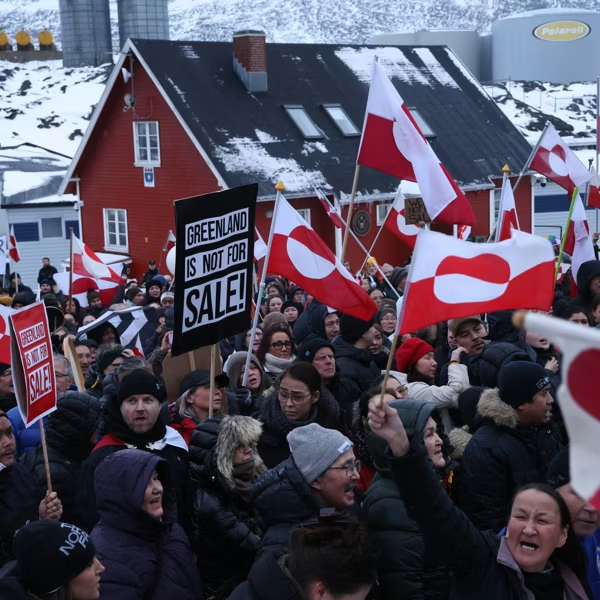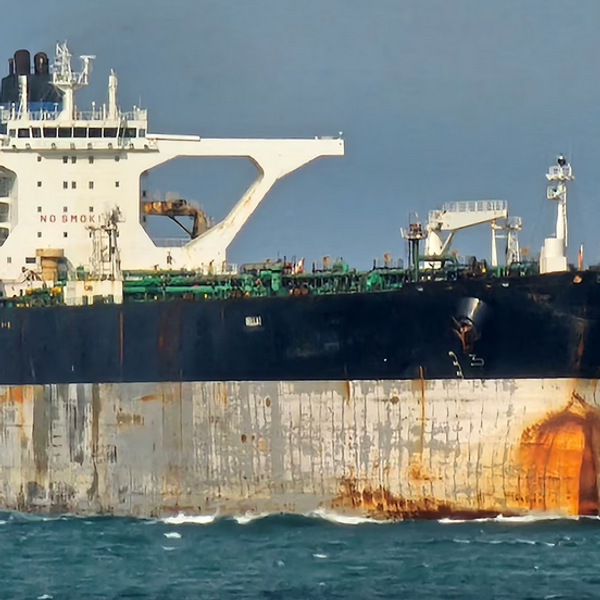My protest was hardly the stuff of legend, it's true. I had managed, somehow, to climb up the side of the platform, and was hanging about eight metres above the freezing Arctic Ocean. Fifteen hours later, when my hard hat was finally broken by the water cannon the rig workers were blasting at us, I decided it was probably time to climb down.
"This concern isn't confined to idealistic hippies. The International Monetary Fund is asking for an end to fossil fuel subsidies. The World Bank is saying that our aspirations to put an end to global poverty in the context of runaway climate change will become futile. Intelligence agencies are warning governments that the biggest threat to global peace and security is climate change, and PricewaterhouseCoopers is warning of stranded fossil fuel investments."
This August, the same Greenpeace ship went back to the same waters, to repeat the same protest at the same rig. Gazprom knew exactly what to expect and so, we thought, did we.
And then the Russian Federal Security Service (FSB) turned up. The guns and knives came out. A cannon was fired, but this time it was not water but bursts of ammunition across the bow of our ship. FSB commandos abseiled onto the deck and seized the vessel, and all 30 on board were held at gunpoint and taken to Murmansk. Since then they spent two months in prison, some of them in solitary confinement for 23 hours a day, before being released on bail. They have been charged with hooliganism, which carries a potential sentence of seven years.
The story of my broken hard hat doesn't impress people quite so much as it used to.
So what happened in the 12 months that passed between these identical protests? What prompted such a different response?
The profit margins on offshore oil extraction in the Arctic have always been slim, and it's certainly arguable that recent developments onshore, most notably the discovery of the Bazhenov shale deposits, have made Gazprom and Shell's expensive joint venture even less economically viable than it already was. If that's the case, then Greenpeace drawing attention to its weaknesses (like the lack of any plan to clean up an oil spill) stops being a mere annoyance and becomes a serious threat.
Yet by over-reacting and demanding the FSB take action, Gazprom attracted a lot more publicity than the hanging of a banner could ever have achieved.
I think the Prirazlomnaya and Gazprom's machinations to keep it afloat need to be understood in a global context, where an unlikely and somewhat uncomfortable coalition is forming between investors, environmentalists, scientists, intelligence agencies and an increasingly radicalised public all calling for governments to intervene on climate change. If we - and they - succeed, then Gazprom and its partner Shell will see billions wiped from their balance sheets.
Here's the problem. Recently the Intergovernmental Panel on Climate Change warned that we can emit a further half a trillion tonnes of carbon dioxide and still stay below 2C of global warming by the turn of this century. Two degrees may sound trifling, but the global impacts are enormous. It means we lose all of the Arctic sea ice and several low-lying nations, and recent extreme weather will look mild by comparison.
So we have a carbon budget of around 500 gigatonnes (GT), yet burning the fossil fuel that corporations now have in their reserves would produce 2,795GT of carbon dioxide -- five times the so-called safe amount. So four-fifths of known fossil fuel reserves and all of the undiscovered resources, including everything in the Arctic, need to remain where they are, underground, unburnt. Worthless. Oil companies' market valuations are based on "assets" whose value has been wiped out by a cruel twist of atmospheric physics. The inevitable market correction won't be pretty, which explains how the oil companies persuaded their vassal governments to ignore the end of the oil age and keep setting fire to our future.
For a stark reminder of what we'll have to get used to if these companies get their way, you need only look to the Philippines. More than 5,000 people lost their lives because of typhoon Haiyan, and hundreds of thousands were left displaced, without food, water or shelter. We know climate change will bring even more extreme weather events. Three years earlier, Russia lost 50,000 people to a heatwave similar to the one that killed 50,000 in Europe in 2003. Extreme weather will become more and more common if irresponsible governments and fossil fuel companies cannot put their self-interest aside and call time on our addiction to fossil fuels.
"We will battle to make our voices heard over the oil industry and their pliant politicians as efforts are made to drown us out, to shut us up, perhaps with a court order, perhaps in a jail cell."
This concern isn't confined to idealistic hippies. The International Monetary Fund is asking for an end to fossil fuel subsidies. The World Bank is saying that our aspirations to put an end to global poverty in the context of runaway climate change will become futile. Intelligence agencies are warning governments that the biggest threat to global peace and security is climate change, and PricewaterhouseCoopers is warning of stranded fossil fuel investments.
Not only are fossil fuel companies holding a busted flush, but alternative energy sources are encroaching on their territory. Photovoltaic panels have dropped in price by over 99% since the 70s, and by around 80% in the last five years. In India, solar is cheaper than diesel. Wind power is following a similar, if slightly less dramatic, decline in cost. The gas industry in Brazil has asked the government to institute protectionist measures to limit their exposure to competition from wind - a competition they have begun to lose. In Australia, the world's biggest coal exporter, all forms of renewable electricity are cheaper than fossil fuels, even coal. But the current prices are less important than the direction of travel. Renewables are dropping in price, while fossil fuels are rising.
All of which explains why companies like Gazprom are so determined to silence their critics. Their only solution is to obfuscate, to muddy the waters and delay the inevitable, all with the connivance of their pocket politicians. Our governments have become the man in the joke who, when confronted by a highwayman with the usual demand of "your money or your life", asks for time to think about it.
Which brings us back to peaceful protests on oil rigs in the freezing Arctic Ocean - the only rational response to years of deliberate inaction. In the days after typhoon Haiyan, the Filipino climate commissioner told the assembled delegates at the latest round of UN climate talks in Warsaw:
"I feel that I should rally behind the climate advocates who peacefully confront those historically responsible for the current state of our climate. These selfless people who fight coal, expose themselves to freezing temperatures, or block oil pipelines. In fact, we are seeing increasing frustration and, thus, more increased civil disobedience. The next two weeks, these people, and many around the world who serve as our conscience will again remind us of our enormous responsibility."
And we will keep doing exactly that. We will battle to make our voices heard over the oil industry and their pliant politicians as efforts are made to drown us out, to shut us up, perhaps with a court order, perhaps in a jail cell. Not because they're evil, but because their fortune is at stake. And it's hard to lose a trillion dollars gracefully.




